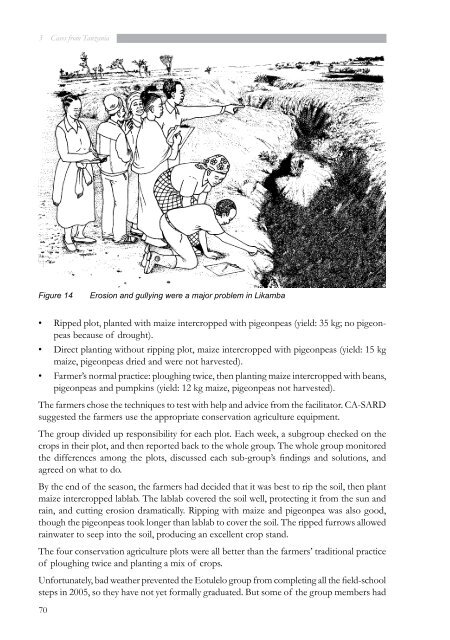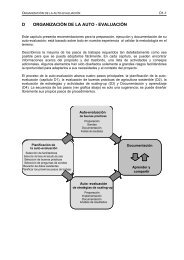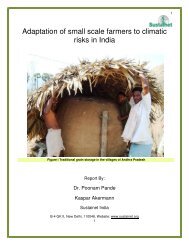cases from tanzania - Sustainet
cases from tanzania - Sustainet
cases from tanzania - Sustainet
You also want an ePaper? Increase the reach of your titles
YUMPU automatically turns print PDFs into web optimized ePapers that Google loves.
3 Cases <strong>from</strong> Tanzania<br />
Figure 14 Erosion and gullying were a major problem in Likamba<br />
• Ripped plot, planted with maize intercropped with pigeonpeas (yield: 35 kg; no pigeonpeas<br />
because of drought).<br />
• Direct planting without ripping plot, maize intercropped with pigeonpeas (yield: 15 kg<br />
maize, pigeonpeas dried and were not harvested).<br />
• Farmer’s normal practice: ploughing twice, then planting maize intercropped with beans,<br />
pigeonpeas and pumpkins (yield: 12 kg maize, pigeonpeas not harvested).<br />
The farmers chose the techniques to test with help and advice <strong>from</strong> the facilitator. CA-SARD<br />
suggested the farmers use the appropriate conservation agriculture equipment.<br />
The group divided up responsibility for each plot. Each week, a subgroup checked on the<br />
crops in their plot, and then reported back to the whole group. The whole group monitored<br />
the differences among the plots, discussed each sub-group’s findings and solutions, and<br />
agreed on what to do.<br />
By the end of the season, the farmers had decided that it was best to rip the soil, then plant<br />
maize intercropped lablab. The lablab covered the soil well, protecting it <strong>from</strong> the sun and<br />
rain, and cutting erosion dramatically. Ripping with maize and pigeonpea was also good,<br />
though the pigeonpeas took longer than lablab to cover the soil. The ripped furrows allowed<br />
rainwater to seep into the soil, producing an excellent crop stand.<br />
The four conservation agriculture plots were all better than the farmers’ traditional practice<br />
of ploughing twice and planting a mix of crops.<br />
Unfortunately, bad weather prevented the Eotulelo group <strong>from</strong> completing all the field-school<br />
steps in 2005, so they have not yet formally graduated. But some of the group members had<br />
70




